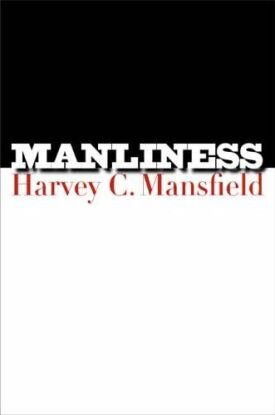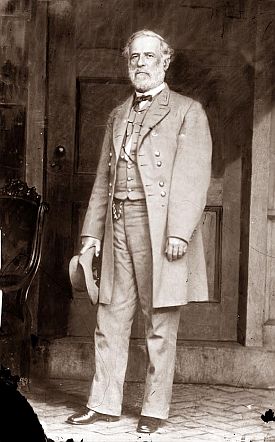Viele Feinde, keine Ehre
Die Ehre gilt als Gegenstand anthropologischer, historischer und literaturwissenschaftlicher Forschung. Aber die Frage der Ehre heute, zumal im Westen, wird selten thematisiert. Kulturen der Ehre sind Kennzeichen der “anderen” — seien es afrikanische, asiatische und ozeanische Stämme, oder die Mafia, Skinheads und ähnliche Jugendbanden in europäischen und amerikanischen Städten. Den aufgeklärten und fortschrittlichen Schichten des Westens anzugehören bedeutet aber fast zwangsläufig, keine Kultur der Ehre zu haben.
Die Gründe liegen auf der Hand. Der westliche Ehrbegriff geriet in Verruf, als er bemüht wurde, um die Gemetzel des Ersten Weltkriegs zu rechtfertigen. Dann haben Feminismus, Psychotherapie, Konsumstreben und individualistische Werte im Westen der Nachkriegszeit so sehr zum Niedergang der Ehre beigetragen, daß man sich kaum noch ernsthaft mit ihr auseinandersetzt.
Seit dem 11. September 2001 aber lassen sich die Existenz und das Potential von Ehrkulturen anderswo — vor allem in der islamischen Welt — nicht mehr ignorieren. Dort ist die Ehre als Beweggrund für den Terrorismus mit Sicherheit wichtiger als der Islam, der ja das Töten Unschuldiger verbietet.
Weil wir selbst keine Kultur der Ehre mehr haben, können wir die der Terroristen, die Flugzeuge ins World Trade Center und ins Pentagon lenkten, Bahnen und Busse in Madrid und London in die Luft sprengten, so schwer verstehen.
Sie verbindet ein Ehrgefühl, das eindeutig stammesorientiert und an persönliche Beziehungen geknüpft ist — an eine “Ehrengruppe”, wie Professor Derek Brewer von der Universität Cambridge sie nennt. Für den Ehrbewußten ist es von allergrößter Wichtigkeit, sein Ansehen in der Ehrengruppe zu bewahren. Auf unsere globalisierte, individualistische und kosmopolitische Gesellschaft wirken solche Stammesbräuche zunehmend fremdartig. Unsere multikulturelle Aufgeschlossenheit wird überdies durch Phänomene wie “Ehrenmorde” an vorgeblich unkeuschen Frauen in Frage gestellt, die etwa in Südasien — und zunehmend unter südasiatischen Einwanderern in Europa — an der Tagesordnung sind. Allerdings neigen wir dazu, sie als Auswüchse eines religiösen Fanatismus zu betrachten.
Das ist ein Fehler. Die Kultur der Ehre ist in Südasien (wie auch anderswo) älter als die heutigen regionalen Religionen, was sich in Indien und Pakistan etwa an der Ähnlichkeit der Ehrpraktiken bei Muslimen und Hindus zeigt. Die Religion ist nur ein Vehikel für diese Kultur, eine äußerliche Markierung der Zugehörigkeit zu einer Ehrengruppe — so wie es in Nordirland bei Katholiken und Protestanten noch heute der Fall ist.
Der jetzt zum Glück überwiegend gewaltfreie Konflikt in Nordirland hatte immer nur den oberflächlichsten Bezug zur Religion. Dasselbe trifft meines Erachtens für den von der Bush- Regierung ausgerufenen “Krieg gegen den Terror” zu. Schon dieser Name zeugt von unserer Unfähigkeit, einen Ehrkonflikt anzusprechen, geschweige denn zu verstehen. Ohne eine eigene Kultur der Ehre sind wir darauf angewiesen, die Kultur des Feindes allein mit dem taktischen Mittel — Terror — zu bezeichnen, das er gegen uns verwendet.
Wie sollen wir aber diesen Konflikt aushalten, wenn wir an unserer Verachtung für die bloße Vorstellung der Ehre festhalten? Es leben noch Menschen, die sich an jene “mission civilisatrice” erinnern können, die einer relativ aufgeklärten und liberalen westlichen Kultur eine ehrenwerte Daseinsberechtigung auch in islamischen und anderen Stammesgesellschaften verlieh. Das scheint heute nicht mehr möglich zu sein.
Aber wir müssen daran glauben, daß wir für eine Sache kämpfen. Wenn die Ehre der islamistischen Krieger unseren Tod fordert, haben wir dem überhaupt etwas entgegenzusetzen außer unserem Wunsch, am Leben zu bleiben? Oder haben unsere multikulturellen Neigungen selbst diesen Wunsch so weit zerstört, daß wir nur noch versuchen können, einen gnadenlosen Feind gnädig zu stimmen, der uns doch unversöhnlich haßt?
Schließlich sind wir für sie nach wie vor “Kreuzritter”, und das mehr als ein halbes Jahrtausend nach dem letzten Kreuzzug und obwohl das Kreuz bei uns seit einem halben Jahrhundert allenfalls noch eine private Vorliebe bezeugt, wie etwa das Abzeichen einer Jugendbande. Wie groß sind unsere Chancen, sie friedfertiger und uns ähnlicher zu machen, wenn wir uns noch liberaler und multikultureller verhalten?
Nicht sehr groß, meine ich. Ohne Ehre haben wir keinen Kampfeswillen, und damit keinen Überlebenswillen — nicht einmal als die liberale und progressive Gesellschaft, die wir sein möchten. Ich glaube, in der amerikanischen Entscheidung für den Irak-Krieg lag ein unausgesprochener Rest von nationalem Ehrgefühl, das sich hinter dem Gerede über Massenvernichtungswaffen und demokratischer Mission verstecken mußte. Das verheißt nichts Gutes hinsichtlich der nationalen Entschlossenheit, den Kampf fortzusetzen.
Läßt sich die Ehre wiederbeleben?
Gelingen könnte es nur, wenn wir uns darauf besinnen, wie stark sich unsere verschüttete westliche Ehrkultur von der unserer heutigen islamistischen Feinde unterschied. Die westlichen Ehrenideale von Ritterlichkeit, Respekt gegenüber Frauen, Vornehmheit und Anständigkeit entwickelten sich über die Jahrhunderte unter dem Druck des Christentums aus einer ursprünglichen Ehrkultur, die einmal so barbarisch war wie die der heutigen Terroristen. Sollten diese Ideale nicht für immer verloren sein, könnte es sich noch immer lohnen, um sie zu kämpfen.
Ü
bersetzung: Ruth Keen[Honor is widely regarded as a subject for anthropological, historical or literary study, but little attention has been paid to the subject of honor in our own times, and in the West. We think of honor cultures as belonging to “the other” — African, Asian or Oceanian tribesmen, the Mafia, skinheads and similar youth gangs of European and American cities. But to belong to the enlightened and progressive classes of the West is almost by definition to be without a culture of honor.
The reason is not far to seek. Western honor got a bad name after it was invoked to justify the slaughter of the First World War. Subsequently, feminism, psychotherapy and a consumerist and individualist ethos in the post-war West have all contributed to honor’s decline — to the point where it is hardly a respectable subject for serious discussion.
Yet since 11 September 2001, it has become impossible to ignore the existence and the potency of honor cultures elsewhere in the world, in particular the Islamic world. There, honor is arguably more important as a motivator of terrorism than Islam, which forbids the killing of innocents.
Our lack of an honor culture of our own is what makes it so difficult for us to understand that of the terrorists who flew airplanes into the World Trade Center and the Pentagon and blew up trains and buses in Madrid and London.
For there is a sense in which honor is inescapably tribal and dependent on face-to-face relations, on an honor group, as Professor Derek Brewer of Cambridge calls it. To the honor-conscious, keeping up one’s reputation within the honor group is a matter of the very highest importance. But in our globalized, individualistic, cosmopolitan society these tribal customs seem ever more foreign.
Our multicultural sympathies are severely taxed by such phenomena as the “honor killings” of women for supposed immodesty that are common in South Asia — and are becoming more common among South Asian immigrants to Europe — but we tend to think of them as manifestations of religious fanaticism.
This is a mistake. The honor culture of South Asia antedates the region’s religions, as we can tell from the similarities between honor’s manifestations among Muslims and Hindus. Religion does, however, provide the vehicle, the outward identification of an honor group, just as it does still in Northern Ireland for Catholics and Protestants.
The conflict there, now thankfully in a mostly non-violent phase, has always had only the most superficial relationship to religion. I believe the same to be true of what the Bush administration has called “the War on Terrorism.”
The name is itself an indication of our inability to talk about, let alone to understand, an honor conflict. Without an honor culture of our own, we are reduced to identifying the enemy’s by the tactics it uses.
Is it possible for us to carry on this conflict while preserving our disdain for the very idea of honor? Within living memory, the belief in a mission civilisatrice gave to a relatively enlightened and liberal Western culture in Islamic and other tribal lands an honorable reason for being. No such idea seems possible anymore.
Yet we must believe that we fight for something. If the honor of Islamicist warriors demands that we die, have we got anything to set against it except the desire to live? Or has the multicultural tendency sapped even that and left us powerless to do anything but attempt to placate an implacable enemy with an ineradicable grievance against us?
After all, we remain to them “Crusaders” more than half a millennium after the last crusade and half a century after the cross disappeared among us as anything but a sign of a private indulgence, like a gang insignium. What are our chances of making them more pacific and more like us by becoming more liberal and multicultural than we already are?
Not great, I should say. Without honor, we have no fight in us, and thus no more will to survive even as the liberal and progressive culture we aspire to be.
I believe that a residual sense of national honor lay behind the American decision to go to war in Iraq, but it that it could not be acknowledged as such. It had to be disguised by the rhetoric about Weapons of Mass Destruction and spreading democracy. This does not bode well for the strength of the national will to continue the struggle.
Is it possible for honor to be revived? I have my doubts, which I outline in detail in the final chapter of my book, Honor: A History, just published in America. But if it is, it will be because we remember how different was the Western honor culture, when we had one, from that of our Islamicist enemies.
The honorable Western ideals of chivalry, respect for women, gentlemanliness and fair play evolved over centuries through the pressures exerted by Christianity — in some respects as anti-honor as we are today — on a native honor culture that was once as savage as that of the terrorists. If these ideals are not irretrievably lost, they may still seem to be things worth fighting for.]
[Top][Back]
Discover more from James Bowman
Subscribe to get the latest posts to your email.


